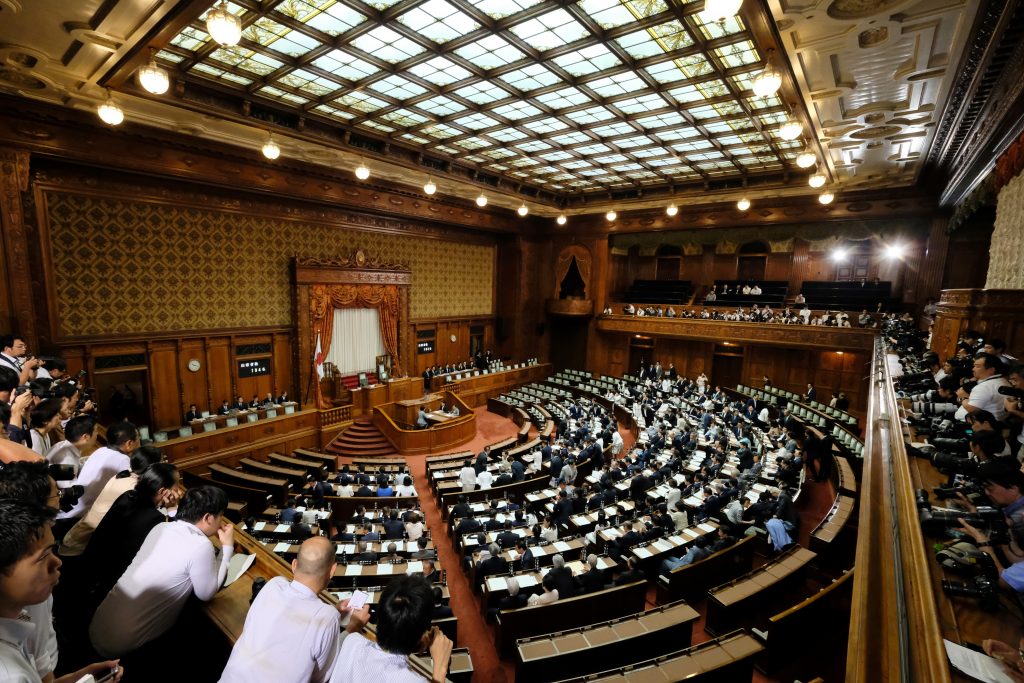
- ARAB NEWS
- 15 Jun 2025

TOKYO: Speculation over a general election being called in Japan has grown after the International Olympic Committee decided Sunday to consider the possibility of postponing the 2020 Tokyo Games amid the new coronavirus pandemic.
Prime Minister Shinzo Abe is expected to make a careful decision on whether to dissolve the House of Representatives, the all-important lower chamber of parliament, while assessing when the coronavirus crisis is likely to come to an end and watching economic conditions currently dampened by the global outbreak of the virus, pundits said.
Some people are speculating that Abe will break up the Lower House for a snap election in summer this year at the earliest or autumn.
"The Olympics won't change political schedules," Toshihiro Nikai, secretary-general of the ruling Liberal Democratic Party, said at a press conference on Monday.
But the Abe administration would suffer a major blow if the Tokyo Games are actually postponed as he has been arranging his political timetable putting high priority on the quadrennial event, sources familiar with the situation said.
There was a prevailing view that it would be difficult for Abe to call a general election until the Tokyo Paralympics end on Sept. 6.
If Abe stays in power for the time being, he would step down by the end of this year at the earliest before his term of office as president of the LDP expires at the end of September next year and cede power to LDP policy chief Fumio Kishida, a strong successor candidate, according to a scenario envisioned by political watchers.
If the Tokyo Games are postponed, however, a blank period would be created in the political diary.
If the Olympic Games are moved to summer next year, the end of the Tokyo Paralympics, the LDP presidential election and the expiration of the term of office for Lower House members would take place one after another in a short time.
In such a case, Abe would likely call a Lower House election between summer this year and spring next year.
If the Tokyo Games are delayed by a year, assuming Abe aims to attend the opening ceremony, he would not hand over the reins of power to Kishida at an early date.
The earliest timing for a general election seems to be simultaneous election for the Lower House and the July 5 Tokyo gubernatorial election, pundits said.
Given that public support rates for the Abe administration have been solid, a senior official of the LDP faction led by Nikai said that "Abe wouldn't hesitate to call double elections."
Another LDP member said a general election would be held after the Tokyo gubernatorial election or at the same time.
There is also speculation that Abe may shake up members of his cabinet before dissolving the Lower House.
"I've heard a scenario in which Abe would reshuffle his cabinet in June or July and dissolve the Lower House in autumn," an LDP member who once held a ministerial post said.
Still, it will be difficult to hold a nationwide election unless the coronavirus outbreak is contained.
"A Lower House election is impossible this year," a senior LDP official said.
Natsuo Yamaguchi, leader of Komeito, the coalition partner of the LDP, suggested at a press conference on Tuesday that it would be unfavorable to hold a general election before the coronavirus crisis is brought under control.
"I want the person who has the right to dissolve the Lower House to try hard to take responses against the situation in which the world is facing a crisis," he said.
If the Japanese economy is headed into a recession due to the coronavirus, it would become difficult for Abe to dissolve the Lower House, pundits said.
The coronavirus crisis is expected to continue affecting the possible timing for a Lower House election, they said.
JIJI Press